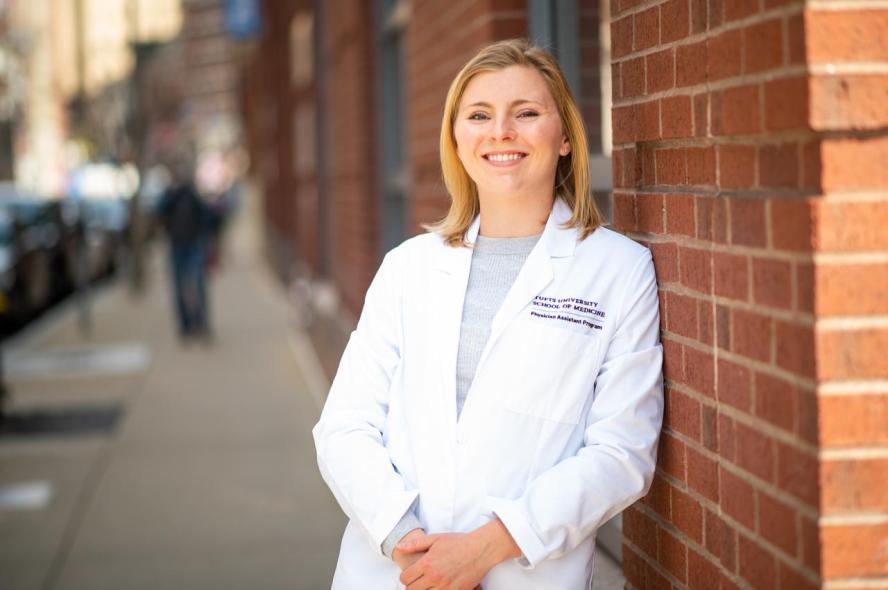-
About
- Departments & Offices
-
Academics
- Physician Assistant
- Special Master’s (MBS)
-
Admissions & Financial Aid
- Tuition & Fees
-
Student Life
-
- Student Resources by Program
- Academic & Student Support
- Wellness & Wellbeing
- Student Experience
- Events & Traditions
-
-
Research
- Research Labs & Centers
-
Local & Global Engagement
- Global Health Programs
- Community Engagement
Emma Webb, PA23
"My year of clinical rotations was by far my favorite part of the program. Compared to other programs, we had shorter rotations but across a larger number of specialties, which meant we got to see an extremely diverse range of medicine."

School: School of Medicine
Degrees: Master’s of Medical Science and Master’s of Public Health (PA/MPH Dual Degree Program)
Home: Darien, Connecticut
What inspired you to become a physician’s assistant?
I found my inspiration after college, working patient care jobs between a busy emergency department (ED) and an in-patient respite shelter for homeless patients. I was watching my patients cycling between EDs, hospitals, and shelters on a shockingly frequent basis. Seeing that cycle taught me a lot about the discontinuity of care faced by homeless and medically underserved patients. While disheartening to experience, it made clear to me why there is such a need for accessible, affordable providers who can treat and diagnose like a physician. I chose to be a PA because I saw it as a way to use my passion for medicine to maximally benefit the people who need it the most.
Why was Tufts the right PA program for you?
Based on my pre-PA experience, I knew I wanted to pursue a master of public health along with my PA degree, and Tufts was one of the select few programs in Boston to offer a combined PA/MPH track, specifically with research opportunities focusing on health inequities and social determinants of health. The other major draws were both its proximity to historically medically underserved areas and an affiliation with a major hospital, which I knew would provide some incredible learning opportunities.
What was the best part of your Tufts experience?
My year of clinical rotations was by far my favorite part of the program. Compared to other programs, we had shorter rotations but across a larger number of specialties, which meant we got to see an extremely diverse range of medicine. For our elective rotations, we were encouraged to pursue specialties that we were interested in, and both the faculty and other students were amazing at sharing rotation opportunities and putting each other in connection with potential preceptors.